Objectifs :
- affirmative / interrogative / négative
- there is / there isn’t
- vocabulaire: sport / voyage
Resources :
Contents
be au présent / have got
1. Mets les phrases à la forme affirmative (+), interrogative (?) ou négative (–).
a. My aunt and uncle are Welsh. (–)
b. This is the train to Cardiff. (?)
c. We aren’t ready. (+)
d. Isn’t this platform 6? (+)
be au présent
| Forme + | Forme – | Forme ? |
|---|---|---|
| I am / ’m | I’m not | Am I…? |
| You / we / they are / ’re | aren’t | Are you / we / they…? |
| He / she / it is / ’s | isn’t | Is he / she / it…? |
Answers for Exercise 1
a. My aunt and uncle aren’t Welsh.
b. Is this the train to Cardiff?
c. We are ready.
d. This is platform 6.
2. Complète avec has got ou have got
à la forme affirmative, négative ou interrogative. Utilise la forme contractée lorsque cela est possible.
- James … any sisters but he … a very cool brother.
- The family … a small farm on the west coast of Wales.
- “… they … sheep?”
- “No, they … but they … pigs.”
have got
| forme + | forme – |
|---|---|
|
I / you / we / they have got = ‘ve got He / she has got = ‘s got |
I / you / we / they have not got = haven’t got He / she has not got = hasn’t got |
- James hasn’t got any sisters but he has got a very cool brother.
- The family has got a small farm on the west coast of Wales.
- “Have they got sheep?”
- “No, they haven’t got but they have got pigs.”
Vocabulary 1
Words to Remember
Verbs
- leave ≠ arrive
- meet
Adjectives
- crazy
- nice
- Welsh
Nouns
- aunt /ɑː/ ≠ uncle
- brother /ʌ/ ≠ sister
- cousin /ʌ/
- farm
- goldfish (two goldfish)
- horse
- house ≠ flat
- luggage /ʌ/
- passenger
- pig
- platform
- railway /eɪ/
- sheep /iː/ (two sheep)
- single ticket ≠ return ticket
- track
- Wales
Traductions du vocabulaire
Verbes
- leave = partir
- arrive = arriver
- meet = rencontrer
Adjectifs
- crazy = fou/folle
- nice = sympathique
- Welsh = gallois(e)
Noms
- aunt = tante
- uncle = oncle
- brother = frère
- sister = sœur
- cousin = cousin(e)
- farm = ferme
- goldfish = poisson rouge
- horse = cheval
- house = maison
- flat = appartement
- luggage = bagages
- passenger = passager/passagère
- pig = cochon
- platform = quai
- railway = chemin de fer
- sheep = mouton
- single ticket = billet simple
- return ticket = billet aller-retour
- track = voie ferrée
- Wales = pays de Galles
1. Complète les phrases suivantes avec des mots du Words to Remember.
a. The next train to Manchester … from … 7.
b. “Do you have any …?” “Yes, I have two bags.”
c. I’d like a … ticket to London, coming back on Sunday.
Réponses – Complète les phrases
- a. leaves, platform
- b. luggage
- c. return
2. Trouve les adjectifs de nationalité correspondants aux pays suivants :
France, England, Spain, Italy, the USA, Morocco, Ireland, Portugal, Turkey
Exemple:
- France → French
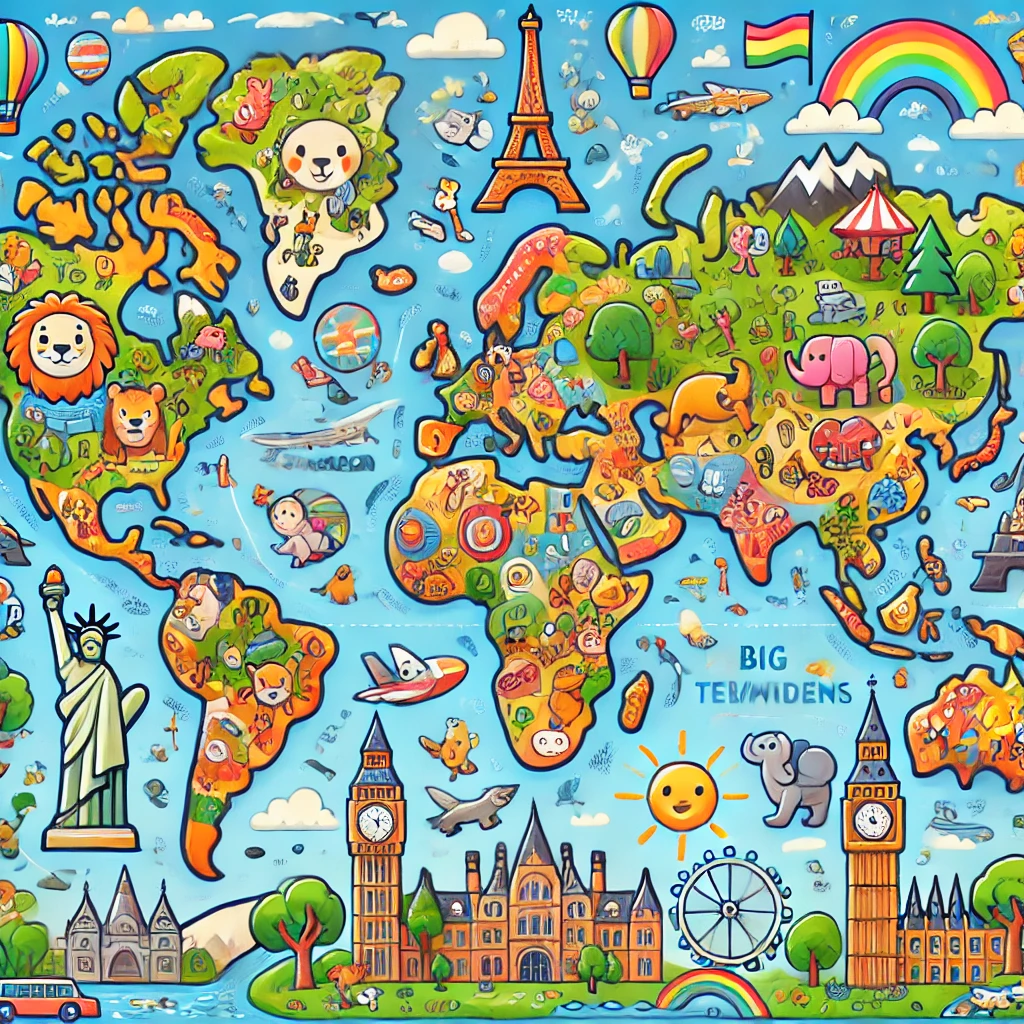
Réponses – Adjectifs de nationalité
- France → French
- England → English
- Spain → Spanish
- Italy → Italian
- The USA → American
- Morocco → Moroccan
- Ireland → Irish
- Portugal → Portuguese
- Turkey → Turkish
3. Vocabulary Challenge
En 30 secondes, cite le maximum d’animaux que tu connais en anglais. Défie un de tes camarades.
There is / There are - Can / Can't
Grammar Time
There is / There are
- On utilise there is / there are pour parler de l’existence de quelque chose.
There’s an art gallery but there aren’t any theatres in this town. And is there a cinema?
Can / Can’t
- On utilise can et can’t pour parler de ce qu’il est possible et impossible de faire.
You can’t do the shopping at the shopping centre on Monday mornings because it’s closed but you can go to the department store.
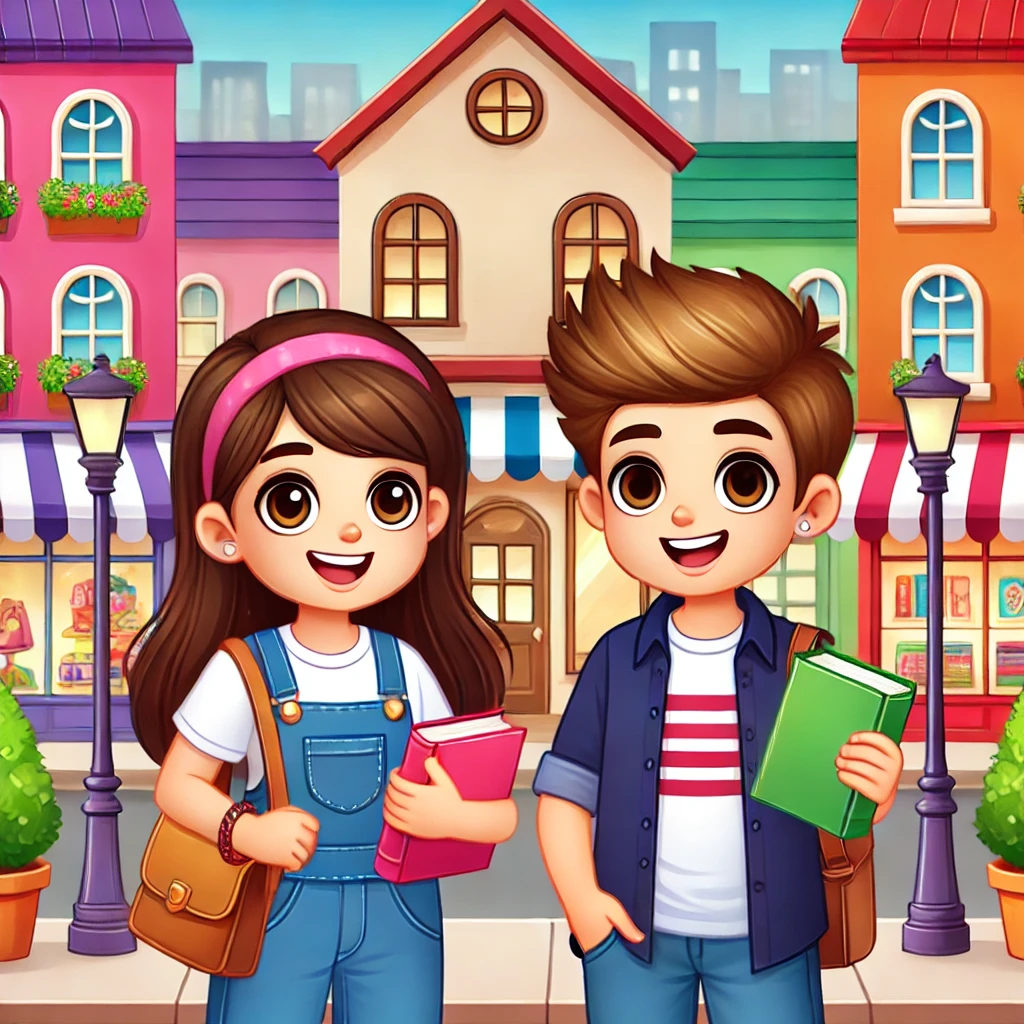
1. Complète avec there’s, there isn’t, there are ou there aren’t.
“Hi, there! I’m Chris. I live in Barry in Wales. … (+) a lot of things to do there. First, … (+) the beach and the funfair at Barry Island is great. I particularly like Broad Street because … (+) some high quality shops. I live in a friendly little street but … (-) a bakery and … (-) any good restaurants near my flat.”
Réponses pour l’exercice 1
- There are a lot of things to do there.
- There’s the beach and the funfair at Barry Island.
- There are some high quality shops.
- There isn’t a bakery.
- There aren’t any good restaurants near my flat.
2. Tu t’adresses en anglais à ton ami(e). Comment…
- a. … lui dirais-tu qu’il/elle peut acheter un sandwich à la cafétéria ?
- b. … lui dirais-tu que tu es désolé(e) mais que vous ne pouvez pas aller au zoo car il est fermé ?
- c. … lui demanderais-tu si tu peux visiter le stade dimanche ?
Réponses pour l’exercice 2
- a. You can buy a sandwich at the cafeteria.
- b. I’m sorry, but we can’t go to the zoo because it’s closed.
- c. Can we visit the stadium on Sunday?
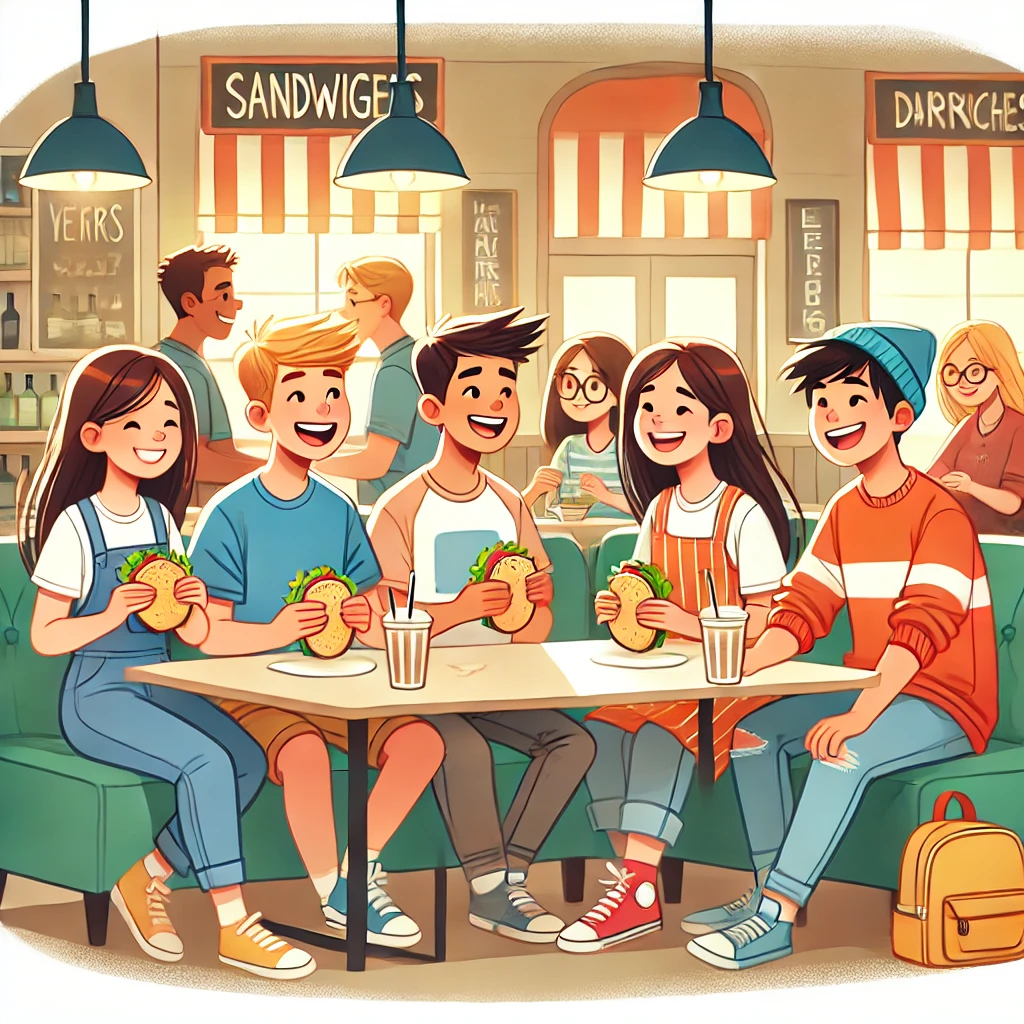
Vocabulary 2
Vocabulary to Remember
Verbs
- enjoy = like
- go for a walk
Adjectives
- disabled access
- impressive
- expensive (≠ cheap)
- open (≠ closed)
Nouns
- cafeteria
- cap
- car park
- castle
- cathedral
- city centre
- gift shop
- (guided) tour
- jersey
- jewellery
- key ring
- journey
- museum
- shopping centre
- stadium
Traductions du vocabulaire
Verbes
- enjoy = aimer
- go for a walk = se promener
Adjectifs
- disabled access = accès handicapé
- impressive = impressionnant
- expensive = cher
- open = ouvert
Noms
- cafeteria = cafétéria
- cap = casquette
- car park = parking
- castle = château
- cathedral = cathédrale
- city centre = centre-ville
- gift shop = boutique de souvenirs
- (guided) tour = visite (guidée)
- jersey = maillot
- jewellery = bijoux
- key ring = porte-clés
- journey = voyage
- museum = musée
- shopping centre = centre commercial
- stadium = stade
1. Complète les phrases suivantes avec des mots du « Words to Remember »
a. Too bad! The museum is … on Tuesdays. Let’s come back tomorrow.
b. £15! That’s very … This cap is only £5.
c. Is there a car … in the city centre?
d. It’s not raining anymore. We could go for a …
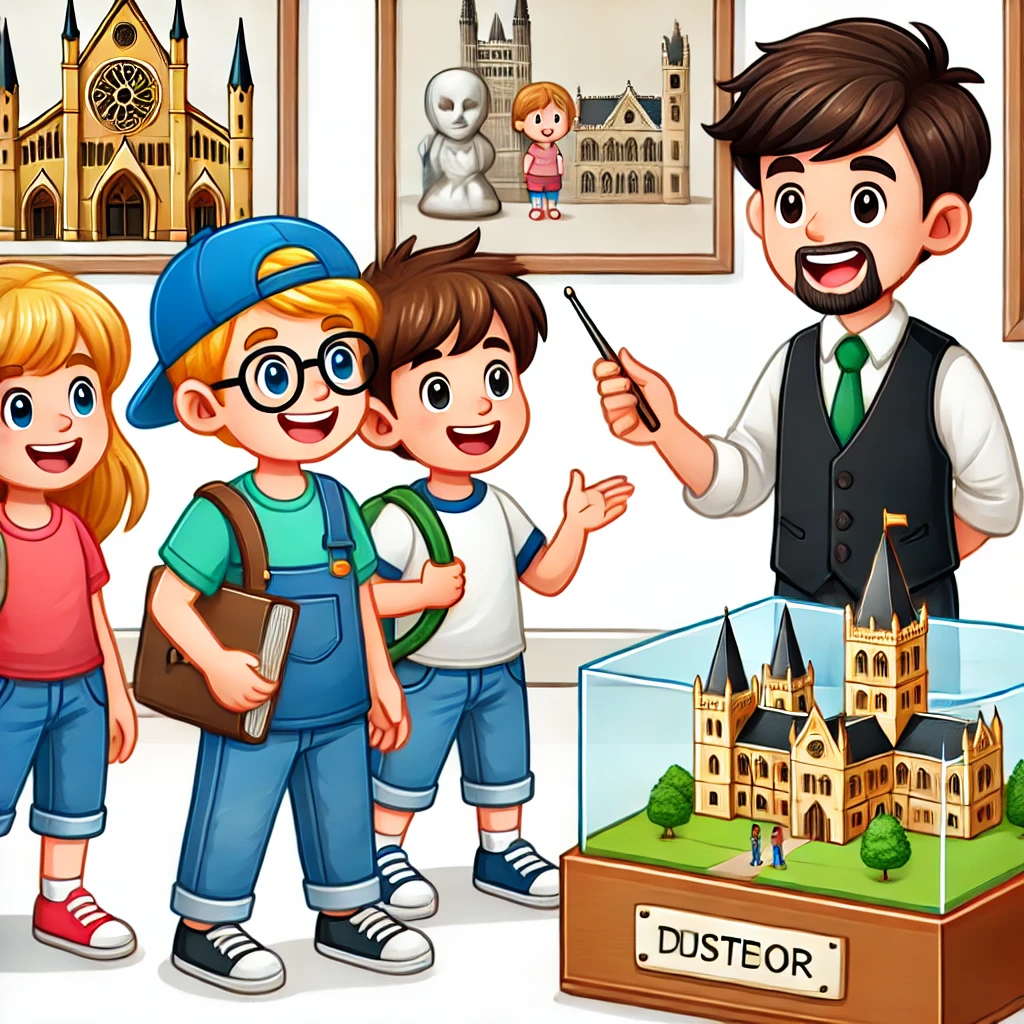
Answers
- a. closed
- b. expensive
- c. park
- d. walk
2. Devine à quoi correspondent les mots suivants. Propose une traduction en français.
- toy shop
- sweet shop
- shoe shop
- sports shop
- pet shop
Answers
- toy shop = magasin de jouets
- sweet shop = confiserie
- shoe shop = magasin de chaussures
- sports shop = magasin de sport
- pet shop = animalerie
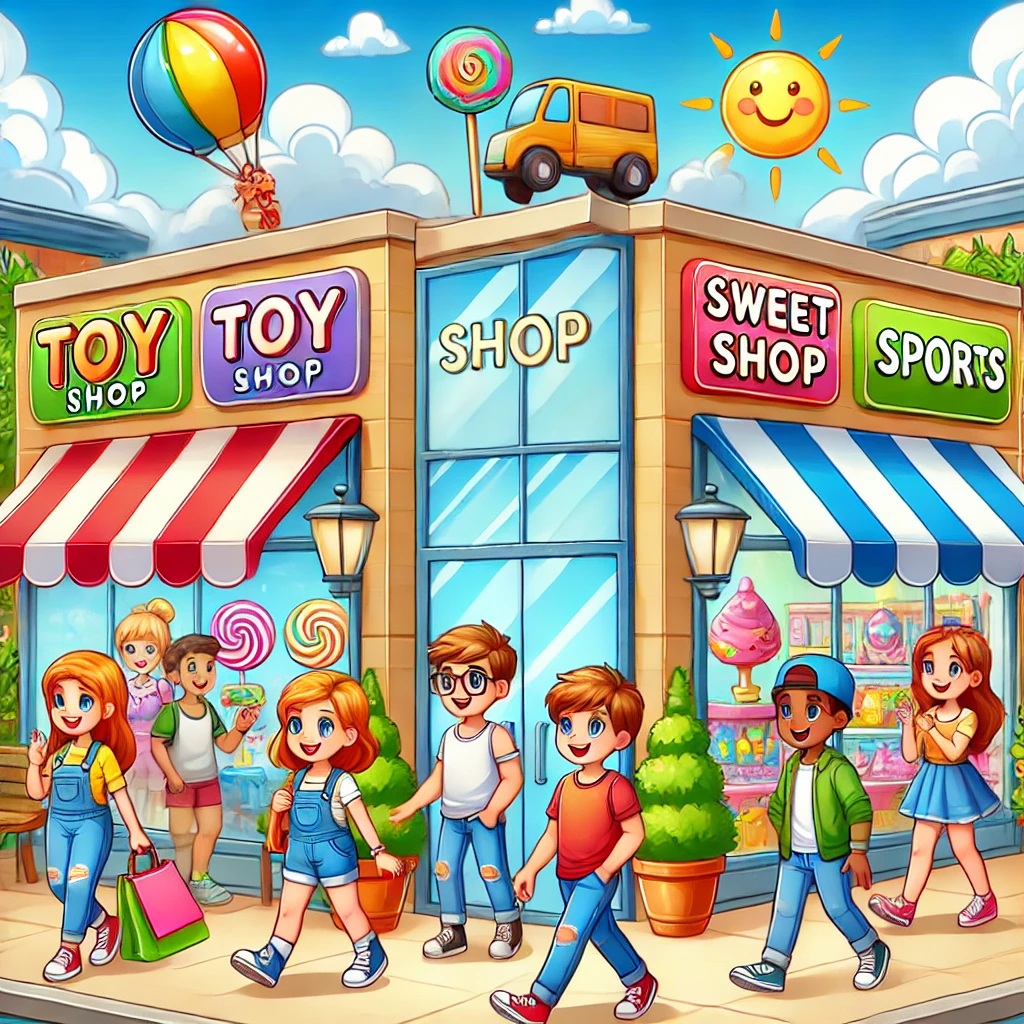
Les verbes de goût - Must / Mustn't - Can / Can't
Les verbes de goût
Pour parler de ce que l’on aime faire, on utilise un verbe de goût suivi d’un nom ou d’un verbe en -ing.
I don’t like football but I love swimming.
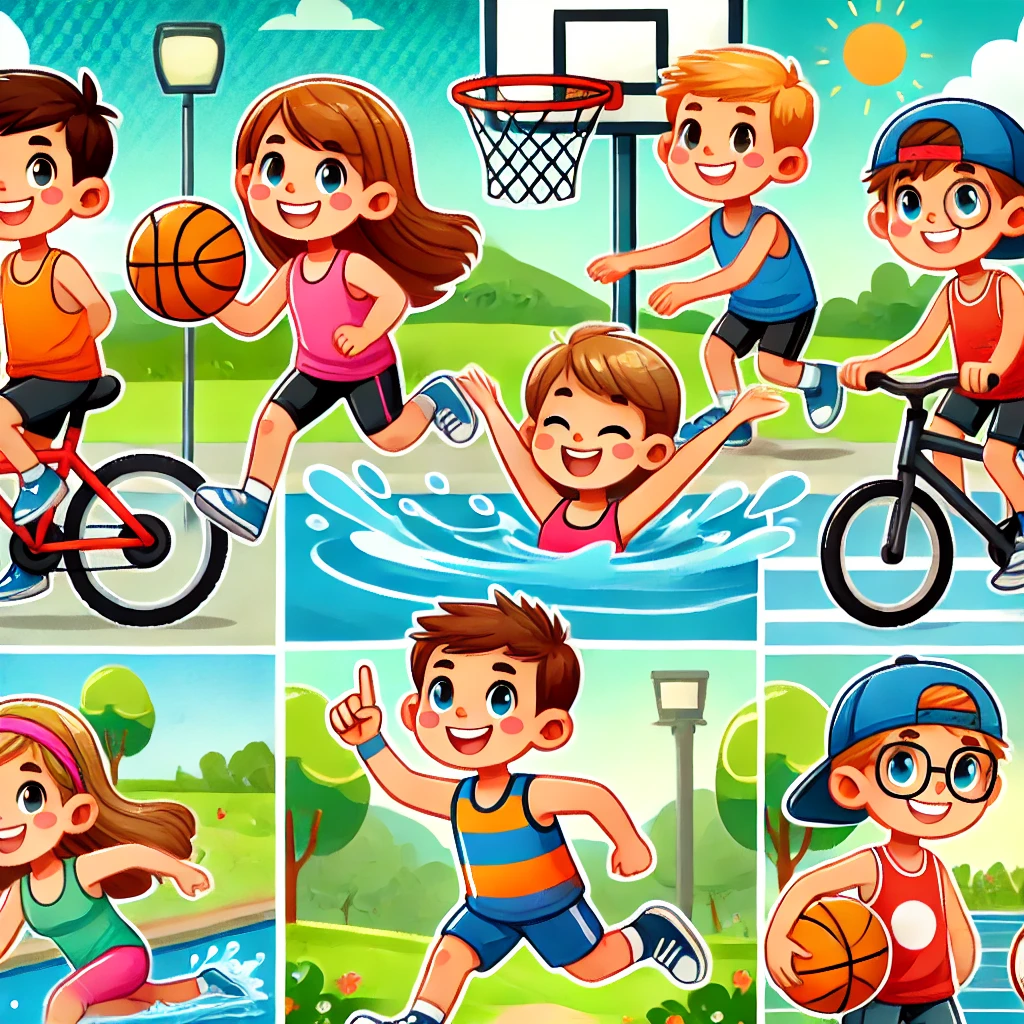
1. Dis si tu aimes ou non pratiquer les sports suivants
- Cyclisme
- Course à pied
- Basketball
- Équitation
- Natation
Must / Mustn’t
On utilise must pour exprimer une obligation et mustn’t pour exprimer une interdiction.
You must listen to the PE teacher.
You mustn’t climb the tree. It’s too dangerous.
2. Mets les éléments dans le bon ordre
Pour savoir ce que Ben doit ou ne doit pas faire en cours d’EPS :
- Ben / use / phone / mustn’t / his / mobile
- be / mustn’t / late / he
- listen / must / his / teacher / he / to
- wear / he / trainers / joggers / and / must
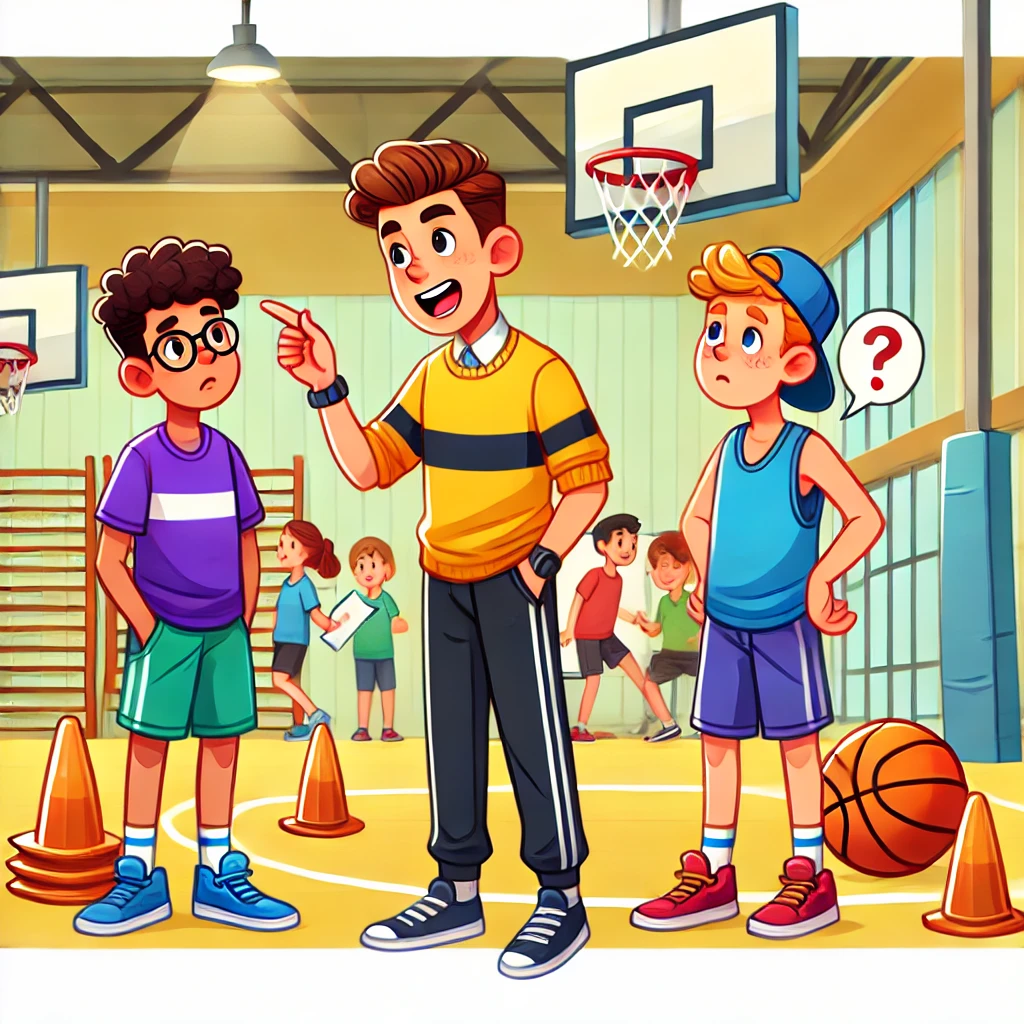
Answers – Exercise 2
- Ben mustn’t use his mobile phone.
- He mustn’t be late.
- He must listen to his teacher.
- He must wear trainers and joggers.
Can / Can’t
On utilise également can pour parler de ce qui est permis.
You can wear jeans or shorts for the race.
3. Complète le règlement du cross
Complète avec must, mustn’t, ou can :
- Only children over 12 … compete.
- Participants … be late.
- Children … respect the rules of the race.
Answers – Exercise 3
- Only children over 12 can compete.
- Participants mustn’t be late.
- Children must respect the rules of the race.
Vocabulary 3
Vocabulary: Words to Remember
Verbs
- dive /aɪ/
- do martial arts
- go cycling /aɪ/
- have fun
- play tennis, football, rugby
- ride a bike, a horse
- run
- swim
- walk
- wear /eə/
Nouns
- athlete
- bog
- competition
- participant
- race /eɪ/
- rule
- snorkel
- snorkelling
- staff
Adjectives
- adventurous
- afraid (of)
- exciting /aɪ/
- good (at)
- high
- prohibited
- ridiculous
- risky
- unusual
Adverbs
- quite /aɪ/
- not very
- really
Traduction des mots
Verbes
- dive = plonger
- do martial arts = pratiquer les arts martiaux
- go cycling = faire du vélo
- have fun = s’amuser
- play tennis, football, rugby = jouer au tennis, au football, au rugby
- ride a bike, a horse = monter à vélo, à cheval
- run = courir
- swim = nager
- walk = marcher
- wear = porter
Noms
- athlete = athlète
- bog = marais
- competition = compétition
- participant = participant(e)
- race = course
- rule = règle
- snorkel = tuba
- snorkelling = plongée avec tuba
- staff = personnel
Adjectifs
- adventurous = aventureux
- afraid (of) = avoir peur (de)
- exciting = passionnant
- good (at) = bon (en)
- high = élevé
- prohibited = interdit
- ridiculous = ridicule
- risky = risqué
- unusual = inhabituel
Adverbes
- quite = assez
- not very = pas très
- really = vraiment
1. Replace the underlined adjectives with adjectives from Words to Remember
- Snorkelling is not a dangerous sport.
- I’m not a very courageous person.
- Are you scared of diving?
- I love wearing stupid costumes.
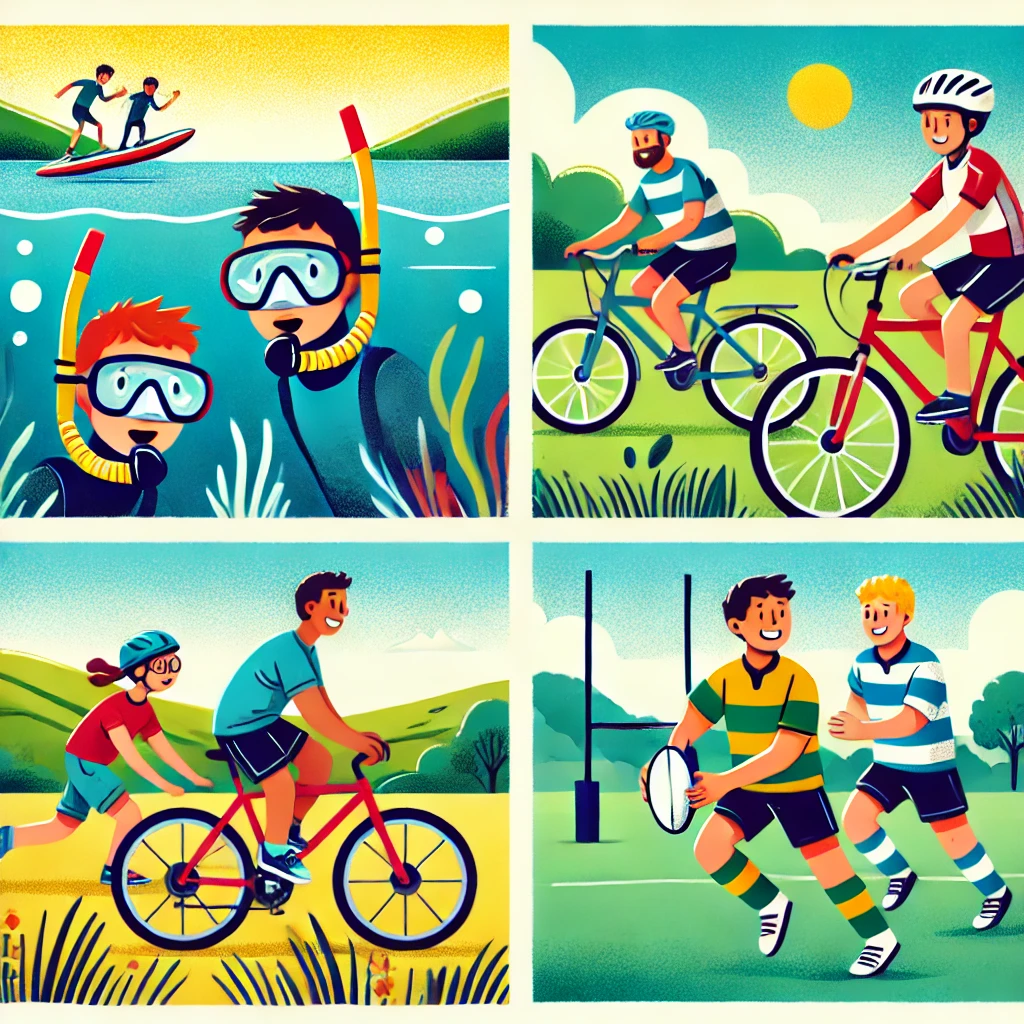
Answers: Exercise 1
- Snorkelling is not a risky sport.
- I’m not a very adventurous person.
- Are you afraid of diving?
- I love wearing ridiculous costumes.
2. Create a mind map to better remember sports vocabulary
Follow this model and organize the vocabulary into categories such as events, people, places, and verbs.
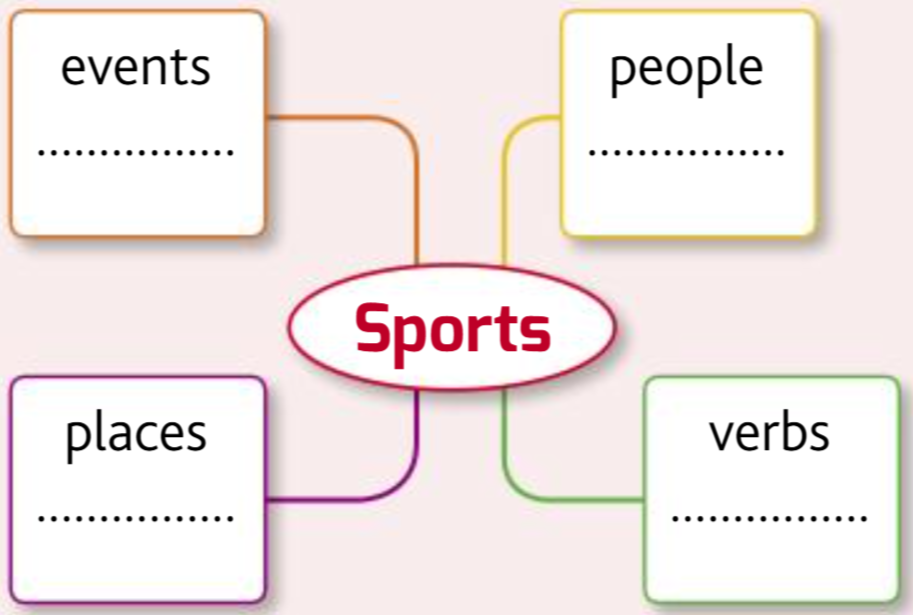
Astuce
Take your copy of Comprendre un Document Audio and stick it in your books.